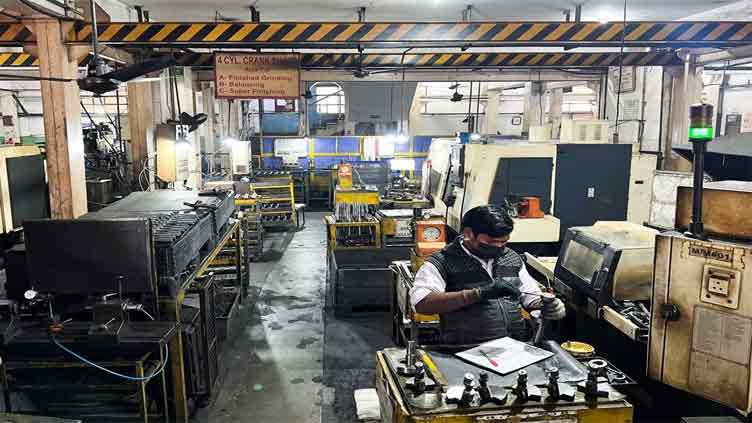India's economic growth set to accelerate to its fastest in a year

Business
Strong growth in services sector has helped it buck the global slowdown
NEW DELHI (Reuters) – India's economy grew at its fastest pace in a year in the April-June quarter, driven by services and manufacturing, data is expected to show on Thursday, though economists warn of a slowdown ahead.
According to the median forecast (INGDPQ=ECI) in a Reuters poll of economists, India's gross domestic product (GDP) grew 7.7 per cent in the past quarter, up from 6.1pc growth in the previous quarter and its fastest expansion since April-June 2022.
Economists say lower commodity prices helped manufacturers increase margins and offset the impact of 250 basis points of cumulative interest rate increases since May 2022.
Suvodeep Rakshit, economist at Kotak Institutional Equities, said he expected growth to be driven by services on the output side and investment on the expenditure side.
Strong growth in India's services sector, which makes up more than half of its economic output, has helped Asia's third-largest economy buck the global slowdown that has left many major economies, including China, stuttering.
S&P Global India services Purchasing Managers' Index (INPMIS=ECI) has remained firmly above the 50-mark separating growth from contraction for nearly two years, the longest stretch since August 2011.
To support growth, Indian government has been front-loading its annual spending on infrastructure. In the first three months of the fiscal year that started on April 1, India had spent nearly 28pc of its capital expenditure budget of 10 trillion Indian rupees ($120.91 billion).
Deutsche Bank's chief India economist Kaushik Das said a 3pc decline in wholesale prices will also contribute to the strong headline growth by reducing the "GDP deflator" used to calculate real economic growth by stripping out price changes.
MODERATION AHEAD
Economists say that price effect could reverse in coming months, and growth could cool off.
After above average rainfall in July, August has been uncharacteristically arid, which pushed up prices of food staples, curtailing discretionary spending.
Dry weather could also hit agriculture output and eat into power of the population in India's hinterlands where a majority depend on agricultural income.
Additionally, slowing global growth and exports and a comparison with higher growth rates a year ago will also weigh on growth in quarters ahead.
"There is some evidence that sequentially the activity is slowing," said Rahul Bajoria, economists at Barclays. "The widespread consensus in the market is that things will slow down."

